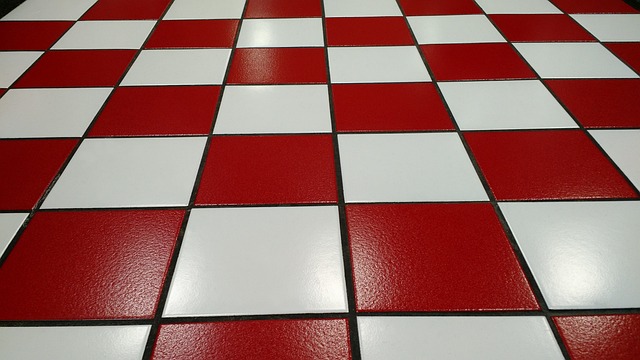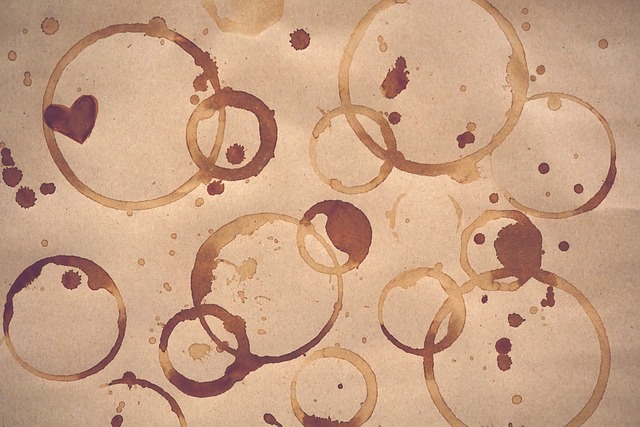Grout stain removal involves understanding causes like water damage, mineral deposits, dirt, mould, or oil. Regular cleaning, sealing, and swift action are preventative measures. Minor stains can be treated with simple solutions, while severe cases may need professional help using specialized tools and knowledge. Chemical cleaners (acid-based, oxidizing agents, enzymatic) effectively target stubborn stains, and natural remedies like vinegar, baking soda, and lemon juice offer eco-friendly alternatives. DIY methods are cost-effective but may not match professionals' thoroughness for severe stains. The right tools, materials, and protective gear are crucial, with regular cleaning and sealing maintaining grout cleanliness. For persistent issues, expert intervention ensures lasting solutions by addressing root causes effectively.
Tired of unsightly grout stains compromising your tile’s aesthetics? This comprehensive guide offers expert solutions for effective grout stain removal. We delve into the causes and severity assessment, empowering you to select the best approach—be it chemical treatments or natural cleaning methods. Learn about DIY versus professional services, essential tools, and prevention strategies. Understand when to seek expert help for a spotless, stain-free grout line that enhances your space. Discover proven techniques for optimal grout stain removal.
Understanding Grout Stain Causes

Grout stain removal can be a challenge, but understanding the root causes is half the battle won. Stains in grout often emerge from various sources—from water damage and mineral deposits to dirt and grime buildup over time. Hard water, for instance, leaves behind calcium and magnesium compounds that can discolour grout. Similarly, mould and mildew thrive in dark, damp spaces, leading to unsightly stains. Another common culprit is oil and grease from spills or foot traffic, which can set into the grout’s pores.
Recognising these causes allows homeowners and professionals alike to employ targeted solutions. Preventative measures like regular cleaning and sealing can significantly delay stain formation. Moreover, addressing water damage promptly and maintaining proper ventilation in tiled areas are essential for grout stain prevention.
Assessing the Severity of Stains

Assessing the severity of grout stains is the first step in effective grout stain removal. Minor stains, often caused by surface dirt or spills, can usually be treated with simple cleaning solutions and scrubbing. These initial efforts aim to eliminate surface debris and prevent it from setting deeper into the grout lines.
More persistent stains, however, may require a more intense approach. This could involve using specialized grout stain removal products that penetrate and dissolve stubborn stains. In cases of severe discolouration or stains that have penetrated deeply into the grout, professional assistance might be necessary. An expert in grout stain removal will possess the tools and knowledge to tackle even the most challenging stains, ensuring optimal results.
Chemical Solutions for Effective Removal

Chemical solutions have proven to be highly effective for tackling stubborn grout stains. These powerful substances are designed to penetrate deep into the pores, effectively breaking down and removing even the most ingrained dirt, grime, and discolouration. Commonly used chemicals include acid-based cleaners, oxidizing agents, and enzymatic treatments, each with its unique mechanism of action to target specific types of stains.
When it comes to grout stain removal, acid-based cleaners are particularly versatile. They work by dissolving the organic matter responsible for staining while also eroding away surface dirt. Oxidizing agents, on the other hand, generate free radicals that aggressively break down organic compounds, leaving behind a clean, brightened grout. Enzymatic treatments offer a more gentle approach, using natural enzymes to digest and remove stains without causing excessive damage to the grout material.
Natural Cleaning Approaches

When it comes to grout stain removal, natural cleaning approaches offer a gentle yet effective solution for maintaining your tiled spaces. Many commercial cleaners can be harsh and leave behind residue, so opting for natural methods is an eco-friendly and safe alternative. Vinegar, baking soda, and lemon juice are powerful allies in the fight against grout stains. For example, creating a paste from baking soda and vinegar can effectively scrub away dirt and grime while neutralizing odors.
Application of these natural remedies involves simple steps: sprinkle the paste onto the stained grout, let it sit for a few minutes to allow penetration, then gently scrub with a soft brush or sponge. This approach is particularly suitable for light to moderate stains. For tougher cases, consider adding a bit of dish soap to enhance cleaning power without sacrificing safety. Natural cleaning not only saves you money but also provides peace of mind, knowing that your home remains fresh and clean without harsh chemicals.
DIY vs Professional Services

When it comes to tackling grout stain removal, there are two primary options: DIY methods or professional services. Doing it yourself (DIY) can be appealing due to its cost-effectiveness and perceived simplicity. There are numerous over-the-counter products and home remedies available that promise to eradicate even the most stubborn grout stains. However, for best results, especially with severe cases, it’s often recommended to opt for professional grout stain removal services.
Professional cleaners have access to specialized equipment and industry-leading solutions designed specifically for grout stain removal. They are trained in the latest techniques and can handle tough stains that DIY methods might not effectively address. Additionally, professionals offer a deeper clean, ensuring that not only the visible surface is treated but also the pores of the grout, preventing future staining.
Choosing the Right Tools and Materials

When tackling grout stain removal, selecting the appropriate tools and materials is paramount for achieving effective results. Begin with high-quality cleaning solutions designed specifically for grout stain removal, such as oxygen-based bleach or specialized grout cleaners. These products are gentle on tile while powerful enough to break down and eliminate stains. Additionally, invest in a good quality brush with stiff bristles—a tool that can agitate and scrub away dirt and grime embedded in the grout lines. For more stubborn stains, consider using a grout cleaning tool or wire brush for deeper cleaning.
Don’t underestimate the power of protection. Always wear gloves to safeguard your hands from harsh chemicals, and eye protection to prevent any accidental splashes. Ensure adequate ventilation during the cleaning process to avoid inhaling strong fumes. Proper preparation is key; test any cleaning solution on a small, inconspicuous area first to check for color fading or damage before applying it to larger surfaces.
Preventing Future Staining

Preventing future grout staining is a key step in maintaining the cleanliness and aesthetics of your tiled surfaces. Regular cleaning plays a pivotal role in this process. Use a mixture of warm water and mild detergent to wipe down grout lines weekly. This removes loose dirt and prevents it from setting into the pores, which can lead to staining over time. Additionally, sealing the grout with a high-quality sealant after cleaning can significantly reduce the risk of future stains. This creates a protective barrier that repels liquid and makes it easier to clean up spills promptly.
Another effective strategy is to address leaks or water issues immediately. Moisture is a primary cause of grout discoloration. Regularly inspect your tiles for any signs of water damage, such as mold or peeling tiles, and rectify them promptly. Additionally, be mindful of the products used in your home, especially cleaning supplies. Avoid using harsh chemicals that can erode grout over time. Opting for natural, non-toxic alternatives ensures long-lasting grout without staining concerns.
When to Seek Expert Help

If you’ve tried numerous grout stain removal techniques without success, it might be time to seek expert help. Grout stains can be particularly stubborn, especially those caused by hard water, mineral deposits, or organic substances like ink and wine. While there are many DIY solutions available, they may not address the root of the problem, leading to recurrent staining.
Expert grout stain solutions offer a more comprehensive approach, beginning with an accurate diagnosis of the cause behind the stain. Professionals have access to advanced tools and techniques that can penetrate deep into the grout lines, effectively removing even the most ingrained dirt and grime. By enlisting their help, you ensure long-lasting results and prevent future stains from forming.
